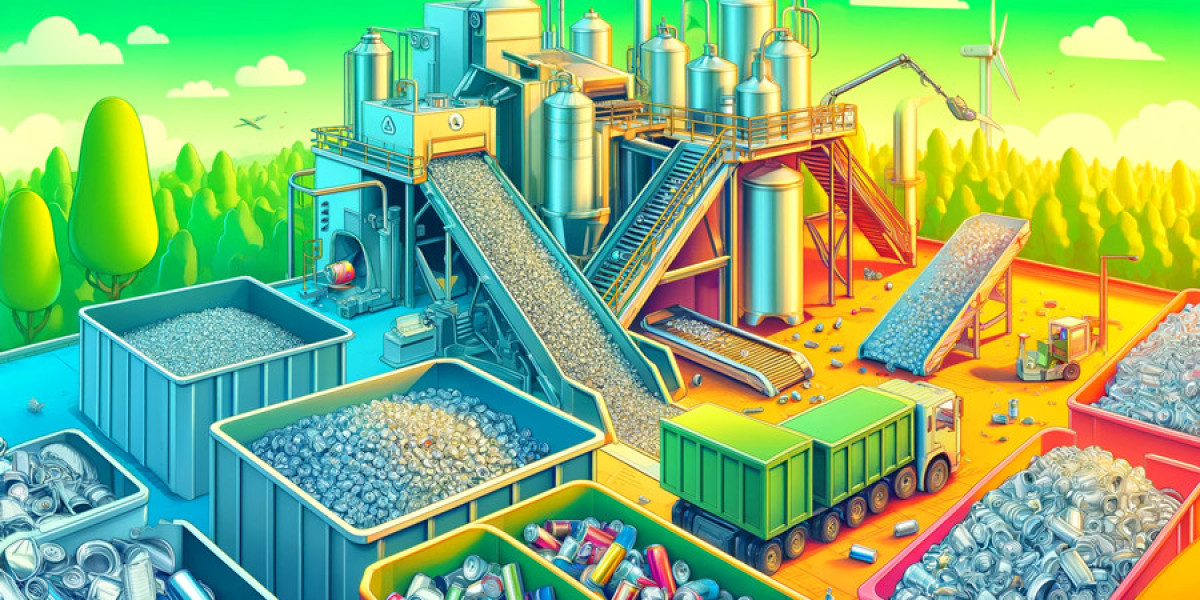Recycling aluminum cans is a simple yet powerful way to contribute to environmental conservation. This everyday action has a significant impact on reducing waste, conserving energy, and cutting down on greenhouse gas emissions.
Reducing Waste in Landfills
When aluminum cans are recycled, it helps reduce the volume of waste that ends up in landfills. Aluminum takes hundreds of years to decompose, which means cans that are not recycled will occupy space in landfills for centuries. By recycling, we can significantly cut down the amount of waste in these landfills, making them last longer and reducing the need to create new landfill sites.
Moreover, landfills produce methane, a potent greenhouse gas that contributes to climate change. Reducing the volume of waste in landfills through recycling aluminum cans helps lower methane emissions. This is a crucial step in mitigating the effects of global warming and preserving our environment for future generations.
Conserving Natural Resources
The process of manufacturing aluminum from raw materials is resource-intensive. It requires the extraction of bauxite ore, which is then processed to produce aluminum. This process involves significant mining activities, which can lead to deforestation, loss of biodiversity, and soil erosion. Recycling aluminum cans circumvents the need for bauxite mining, thus conserving natural resources and protecting ecosystems.
In addition to conserving bauxite, recycling aluminum saves water. The production of aluminum from raw materials uses a substantial amount of water. By recycling, we can reduce the demand for fresh water, helping to preserve this vital resource.
Saving Energy
Recycling aluminum cans saves a considerable amount of energy compared to producing new aluminum from raw materials. It takes about 95% less energy to recycle aluminum than to produce it from bauxite ore. This significant energy saving translates to fewer fossil fuels being burned, which means lower carbon emissions and a reduced carbon footprint.
The energy saved from recycling a single aluminum can is enough to power a television for three hours. This statistic highlights how small actions, like recycling cans, can collectively lead to substantial energy savings. Encouraging more people to recycle can thus play a crucial role in energy conservation efforts worldwide.
Cutting Down Greenhouse Gas Emissions
Producing aluminum from bauxite ore generates a high amount of greenhouse gases, including carbon dioxide. These emissions contribute to the greenhouse effect, leading to global warming and climate change. Recycling aluminum cans drastically reduces the emissions associated with aluminum production.
By recycling, we can reduce the carbon footprint of aluminum production by up to 95%. This reduction is vital in the fight against climate change. Lower greenhouse gas emissions mean a healthier planet with less severe climate impacts, such as extreme weather events, rising sea levels, and disrupted ecosystems.
Supporting the Circular Economy
Recycling aluminum cans is a key component of the circular economy. In this model, products and materials are kept in use for as long as possible, extracting the maximum value from them before recovering and regenerating materials at the end of their service life. This contrasts with the traditional linear economy, which follows a 'take, make, dispose' pattern.
The circular economy aims to minimize waste and make the most of resources. Aluminum can be recycled indefinitely without losing quality, making it an ideal material for this sustainable model. By recycling aluminum cans, we support the circular economy and help create a more sustainable system that benefits both the environment and the economy.
Economic Benefits
Recycling aluminum cans also has significant economic benefits. The aluminum recycling industry provides jobs and stimulates economic activity. In Australia, the recycling sector contributes billions of dollars to the economy annually. These economic benefits come from the collection, processing, and selling of recycled aluminum, creating a robust market for recyclable materials.
Moreover, recycling aluminum reduces the costs associated with waste management. It is cheaper to recycle materials than to dispose of them in landfills. By participating in recycling programs, such as the cash for cans program, individuals can also earn money while contributing to environmental conservation. This incentive encourages more people to recycle, further boosting the economy.
Educating and Engaging the Community
Promoting the environmental benefits of recycling aluminum cans is an excellent way to educate and engage the community. Schools, community groups, and local governments can run campaigns to raise awareness about the importance of recycling. These initiatives can include workshops, educational materials, and recycling challenges to encourage participation.
Community engagement is crucial in driving behavioral change. When people understand the positive impact of their actions, they are more likely to participate in recycling programs. By fostering a culture of recycling, we can make significant strides in environmental conservation and sustainability.
Reducing Pollution
Recycling aluminum cans helps reduce pollution in various ways. The process of mining and refining bauxite ore produces a significant amount of pollutants, including toxic chemicals and heavy metals. These pollutants can contaminate soil, water, and air, posing serious health risks to humans and wildlife.
By recycling aluminum, we reduce the need for these polluting activities. Recycling plants are designed to minimize emissions and waste, making the recycling process much cleaner than traditional aluminum production. This reduction in pollution leads to healthier ecosystems and communities, making recycling an essential practice for environmental protection.
Encouraging Sustainable Practices
Recycling aluminum cans is a gateway to adopting more sustainable practices. When individuals start recycling, they often become more conscious of their environmental impact and seek other ways to reduce their footprint. This can lead to a broader adoption of sustainable habits, such as reducing single-use plastics, conserving water, and supporting renewable energy.
Sustainable practices help create a more resilient and adaptable society. By making small changes in our daily lives, we can collectively contribute to a healthier planet. Recycling aluminum cans is a simple yet effective step toward a more sustainable future.
The environmental impact of recycling aluminum cans is profound and far-reaching. Recycling supports the circular economy, provides economic benefits, and helps reduce pollution. Moreover, it educates and engages the community, encouraging sustainable practices that contribute to a healthier and more sustainable world.



